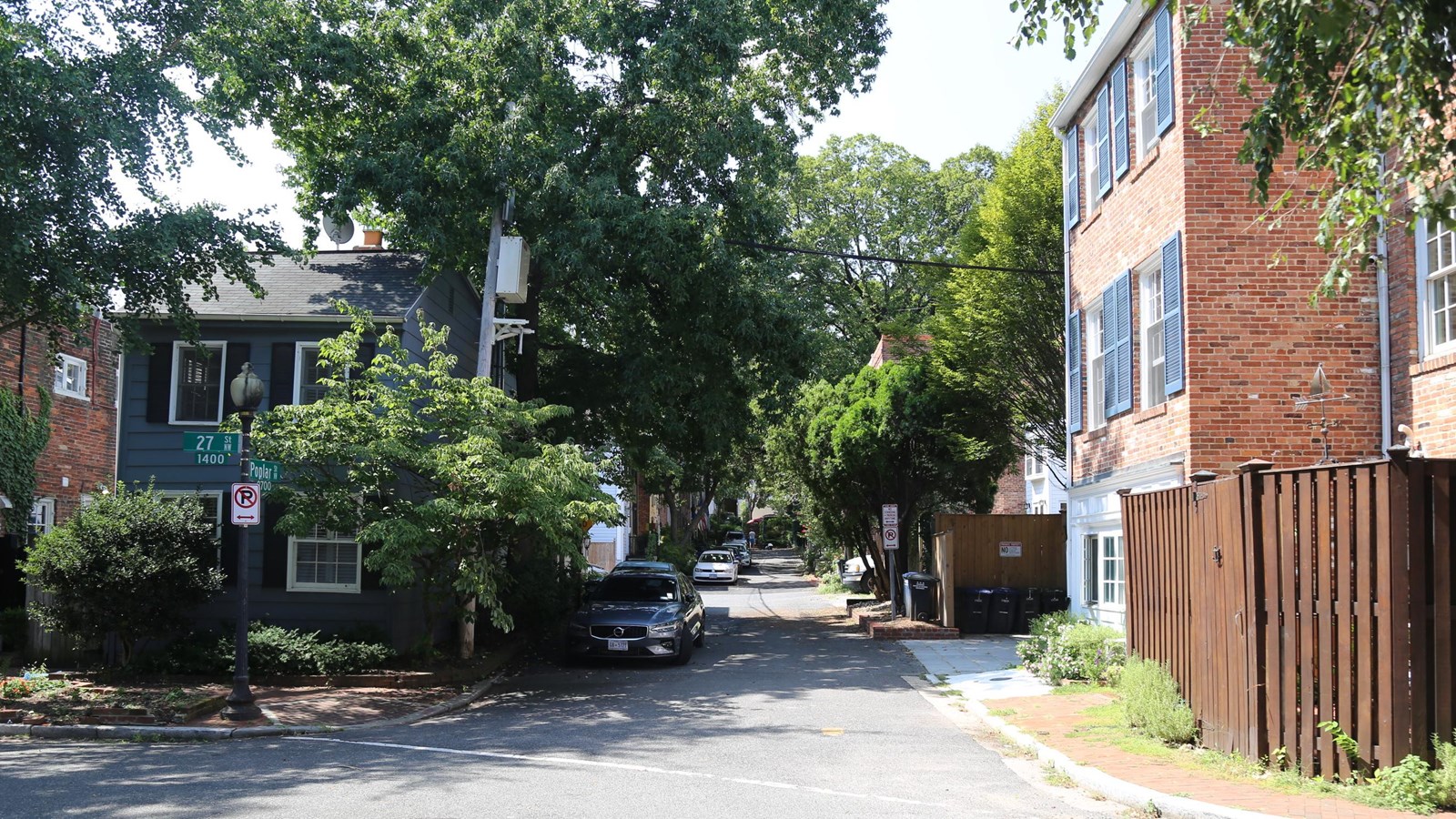Last updated: February 27, 2025
Place
Poplar Alley

NPS/ R. Maher
Quick Facts
OPEN TO PUBLIC:
No
Amenities
1 listed
Accessible Sites
This street, and many small alleyways like it, had their own communities. While some were rough around the edges, others were vibrant, loving spaces. The Alley Dwelling Act forced change. What was on the surface a way to ‘clean up’ the more worse for wear areas of Georgetown (and the City of Washington), in reality was a way to force African Americans from their homes.
Many of these structures were built in the early 1800s by affluent Georgetown residents for their enslaved African American and poor white staff members. Eventually, families were able to purchase the homes. Many owned several structures and would rent rooms out. The Alley Dwelling Act put an end to leasing rooms and demanded that these become single family homes. Property values were assessed and though a family may have owned a home for generations, the current generation could not afford the property taxes that were newly increased and levied against them. Many of the homes, without electricity, heat, or indoor plumbing were deemed “unsafe for human habitation” and were set to be demolished. However, instead of demolishing these homes, many of them were upgraded, flipped, and then sold to “New Dealers” coming to town to work for the newly expanded government. The Alley Dwelling Act was the final nail in the coffin of Herring Hill.
Poplar Alley is lined with privately owned residences. Please respect the privacy of the neighbors.
Many of these structures were built in the early 1800s by affluent Georgetown residents for their enslaved African American and poor white staff members. Eventually, families were able to purchase the homes. Many owned several structures and would rent rooms out. The Alley Dwelling Act put an end to leasing rooms and demanded that these become single family homes. Property values were assessed and though a family may have owned a home for generations, the current generation could not afford the property taxes that were newly increased and levied against them. Many of the homes, without electricity, heat, or indoor plumbing were deemed “unsafe for human habitation” and were set to be demolished. However, instead of demolishing these homes, many of them were upgraded, flipped, and then sold to “New Dealers” coming to town to work for the newly expanded government. The Alley Dwelling Act was the final nail in the coffin of Herring Hill.
Poplar Alley is lined with privately owned residences. Please respect the privacy of the neighbors.
